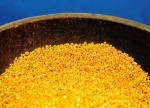
- All Instrument Types
- Indices
- Equities
- ETFs
- Funds
- Commodities
- Currencies
- Crypto
- Bonds
- Certificates
Please try another search

Pound to Dollar Rate: Fed Minutes Challenge Bullish Technical Outlook
 Pound to Dollar Rate: Fed Minutes Challenge Bullish Technical Outlook
Pound to Dollar Rate: Fed Minutes Challenge Bullish Technical Outlook
PoundSterlingLIVE - The Pound to Dollar exchange rate (GBPUSD) was left defending a key technical level following the release of the minutes for the most recent Federal Reserve policy meeting that proved more 'hawkish' than expected.
GBPUSD reversed the day's tentative gains to fall back to 1.27 after the minutes revealed some members favoured raising rates at the June meeting and that the decision to pause was not a unanimous one, although no member of the FOMC actually voted for a hike.
"The immediate reaction to the FOMC minutes was equities lower and USD higher against everything," says Adam Cole, Chief Currency Strategist at RBC Capital Markets.
The minutes suggest interest rates in the U.S. might stay higher for longer, a development that is broadly supportive of USD. New York Federal Reserve chair Williams overnight echoed that sentiment, saying "we don’t think we are done."
The recent price action in the USD challenges a positive technical setup in GBPUSD: "The area around 1.2700 was previously support before last week’s breakdown. We are now back above this zone and for as long as the bulls can cling on here, we might see some follow-up buying to push us to a new high for the year above 1.2850," says City Index analyst Fawad Razaqzada.
Razaqzada says the technical outlook remains supportive thanks to a succession of "higher highs and higher lows".
GBPUSD peaked at its highest level since April 2022 on June 16 at 1.2850 but retraced over the following days as the U.S. Dollar made a broader comeback linked to a realisation the Federal Reserve would raise interest rates further in response to better-than-expected economic data.
The pullback has nevertheless been relatively shallow, allowing GBPUSD to settle around 1.27 again.
But according to Razaqzada, a defence of the 1.27 level will be an important requirement for the bullish setup to persist.
"But a closing break below 1.27 handle is what the bears would be looking for to push rates below 1.2600 support. So, watch the closing print carefully today, as it could determine the directional bias for the next couple of days," says Razaqzada," he says.
The Pound was the best-performing major currency of the first half of 2023 as it advanced in value against the entire G10 field amidst a better-than-expected UK economic performance and rising interest rates at the Bank of England.
UK two-year bond yields are proving an attractive offer for yield-hungry international investors as they remain close to their highest level since 2008, as markets move to price in these further interest rate rises at the Bank of England.
"We think GBP should outperform as real rates need to move higher," says Michael Cahill, foreign exchange analyst at Goldman Sachs (NYSE:GS).
But near-term much depends on the U.S. side of the equation given the first major data release of the month for the Pound only arrives on July 11 with the release of labour market figures.
The first of two near-term releases out of the U.S. that will potentially push Pound-Dollar action is the ISM services PMI on Thursday, July 6 at 15:00 BST.
Monday saw the ISM manufacturing PMI come in well below expectations again (41.8 vs. 44.0) as activity contracted at a faster pace in June compared to May, taking it to its lowest level since May 2020, at the height of the pandemic.
"While the manufacturing sector activity has been weakening, the services PMI has remained above the expansion level of 50.0 for the past three months – albeit, just above. If we start to see renewed strength come into the services sector despite high interest rates, then this should keep the doves at the FOMC quiet for another couple of months at least," says Razaqzada.
"However, if the services PMI also turns lower, then this will raise recession alarm bells, and potentially weigh on the dollar," he adds.
The U.S. non-farm payrolls report falls on Friday, July 7 at 13:30 BST. Another robust reading is expected given last week's survey data were mostly positive, pointing to an economy continuing to defy expectations.
"The jobs market has been particularly strong with nonfarm payrolls data beating expectations in the last 14 months in a row! Will that trend continue? If it does, it will mean interest rates will likely remain higher for longer. This could benefit the US dollar in the short-term, even if high rates for longer might be something that could ultimately hurt the economy at some later point in time," says Razaqzada.
An original version of this article can be viewed at Pound Sterling Live
Related Articles
Are you sure you want to block %USER_NAME%?
By doing so, you and %USER_NAME% will not be able to see any of each other's Investing.com's posts.
%USER_NAME% was successfully added to your Block List
Since you’ve just unblocked this person, you must wait 48 hours before renewing the block.
I feel that this comment is:
Thank You!
Your report has been sent to our moderators for review






Add a Comment
We encourage you to use comments to engage with users, share your perspective and ask questions of authors and each other. However, in order to maintain the high level of discourse we’ve all come to value and expect, please keep the following criteria in mind:
Perpetrators of spam or abuse will be deleted from the site and prohibited from future registration at Investing.com’s discretion.